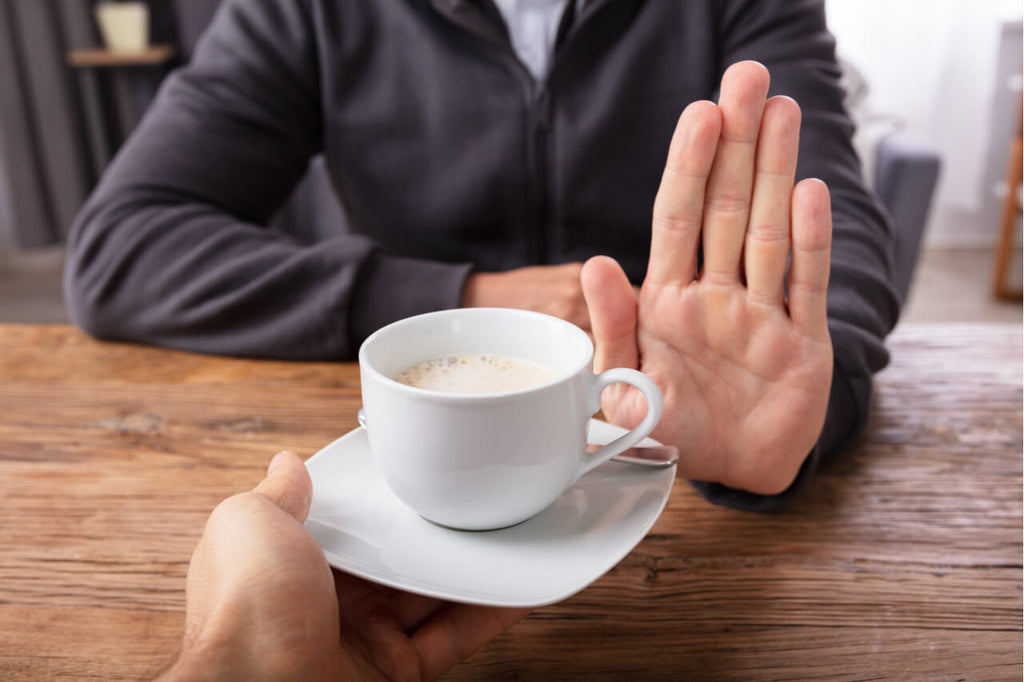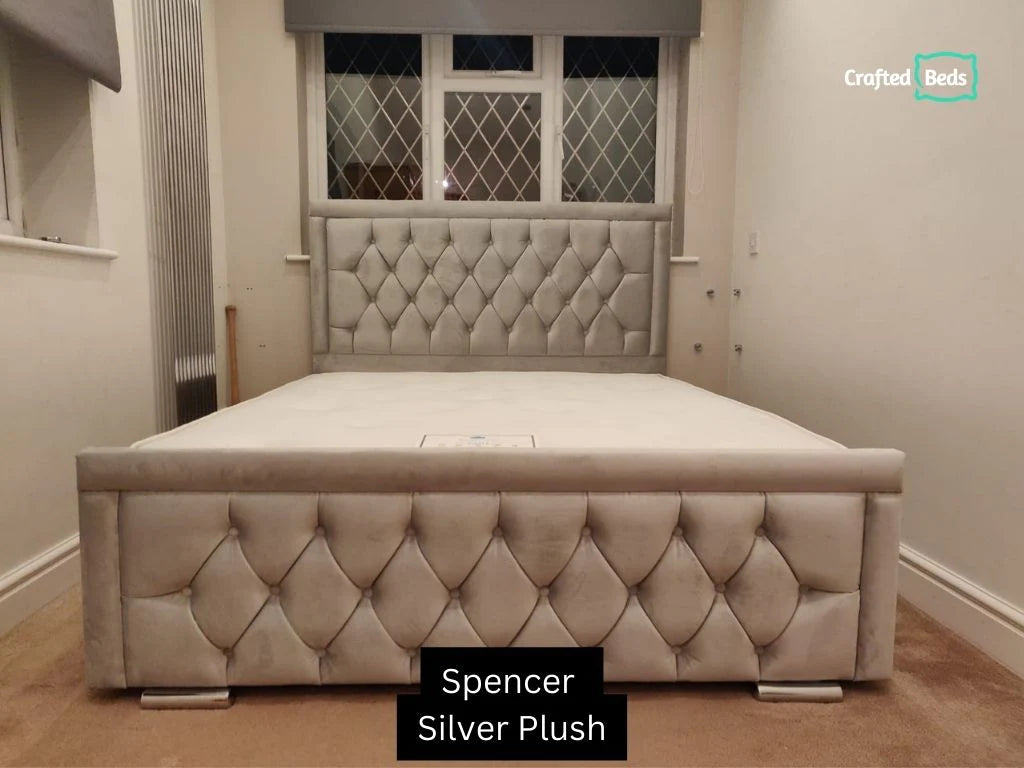Insomnia is a widely spread condition that most people encounter once in their lifetime.
People who have Insomnia are unable to fall asleep, sleep well, or get enough restful slumber. Insomnia is a widespread sleeping condition. In time, insufficient sleep may lead to health issues such as diabetes, hypertension, and weight gain.
This blog post will discuss the various types of Insomnia and how acute Insomnia can impact your day-to-day functioning. So, let's get started:
What are the different types of Insomnia?
We have classified Insomnia into five broad categories:
Acute Insomnia
Acute Insomnia is a condition in which you have trouble falling asleep or staying asleep. It can be caused by stress, anxiety, depression, and other mental health conditions. Acute Insomnia may also occur as part of a critical illness such as fever, colds, influenza, etc.
Chronic Insomnia
Chronic Insomnia is a long-lasting problem where you have difficulty getting quality restful sleep for more than three months. This type of Insomnia may be caused by poor sleep hygiene, chronic pain, substance abuse, shift work, and other issues.
Onset Insomnia
Onset Insomnia is a common complaint among patients. The most common symptoms are difficulty falling asleep, waking up frequently during the night and early morning hours, and having trouble sleeping again at night.
Other symptoms include feeling tired during the day, irritability, mood swings, excessive daytime sleepiness, and decreased concentration.
Maintenance Insomnia
Maintenance insomnia is a condition in which you wake up several times throughout the night, and your sleep becomes fragmented. You feel tired during the day and experience difficulties concentrating and remembering things.
Behavioural Insomnia in Childhood
Behavioural Insomnia in childhood is a condition in which children exhibit abnormal behaviours while trying to fall asleep. These behaviours include talking, moving around, playing with toys, and even crying. They often get out of bed multiple times and disrupt their sleep patterns.

What is the difference between chronic and acute Insomnia?
The crucial difference between acute and chronic Insomnia is the time duration. At the same time, Chronic Insomnia persists for more than three months or longer and has a snowball effect.
Chronic Insomnia
Chronic sleeplessness is a pattern of sleeping restlessness that lasts for an extended period. Chronic sleeplessness is defined as difficulty sleeping at least three nights each week for three months or more. It affects men and women of all ages and is somewhat more prevalent in women.
What are the causes of chronic Insomnia?
Many potential triggers lead to Chronic Insomnia:
- Lifestyle patterns such as frequently crossing across time zones and shift work
- Depression and anxiety
- Disruptive bed partner
- Discomfort and pain during the night due to long term medical conditions
- Use of anti-depressant medications
- Chronic stress
- Poor sleep hygiene
- Stimulant overuse such as caffeine, nicotine, and illicit drugs
What are the treatment options for chronic Insomnia?
Cognitive-behavioural therapy for Insomnia (CBT-i) is one of the proven therapy for Chronic Insomnia. It involves the 360-degree study of your sleep pattern. As it primarily consists of sleep medication, there are no side effects with this therapy.
The broad components of CBT-i are:
Sleep restrictions
Sleep restriction improves sleep quality and quantity by limiting the amount of time you spend awake in bed.
A CBT-i therapist will want you to keep a sleep diary, which they will use to determine how much sleep you get at night versus how much time you spend awake in bed. The objective is to minimize the bedtime utilized to consolidate sleep.
Sleep Hygiene
Sleep hygiene focuses on changing your habits about sleep.
It entails developing positive daily routines - such as maintaining emotional wellness, getting enough morning light, avoiding caffeine after lunchtime, exercising, and cutting alcohol consumption at night - optimizing your bedroom for rest, ensuring that your sleep environment is dark, temperate, and quiet for a calming sleep.
Relaxation Techniques
Sleep experts also agree that performing relaxation strategies can help with sleeplessness. Breathing exercises, muscle relaxation, guided meditation, and yoga are methods that may help you get ready for rest.

Is there any natural remedy for Chronic Insomnia?
There is a range of natural remedies that can help you with Chronic Insomnia:
Use of Epsom Salts
Epsom salt baths are considered effective in preparing your body for a restful night's sleep. They contain magnesium sulfate, which relaxes muscles and promotes sleep. You can soak in a warm tub filled with about 1 cup of Epsom salts for 15 minutes before bed.
Tart Cherry Juice
This juice promotes the sleep hormone melatonin to induce sound sleep. Hence, it is customary to take this juice before going to bed.
Avoid Alcohol
Alcohol has been known to cause Insomnia. So if you have a problem with chronic Insomnia, then avoid drinking alcohol.
Lemon Balm and Theanine
The calming blend of Theanine and Lemon Balm is considered adequate for inducing a relaxing sleep.
Magnesium Supplementation
It is recommended to supplement with Magnesium to promote healthy sleep. Magnesium helps in regulating the sleep cycle and regulates neurotransmitters responsible for rest.
Melatonin
Melatonin supplements are available in the form of pills or drops. It is an essential hormone produced naturally by the pineal gland. It is responsible for regulating the circadian rhythm of our body. Melatonin levels peak during the early part of the night and dip during the middle of the night. This is why people who suffer from insomnia experience difficulty falling asleep.
Acute Insomnia
Acute Insomnia is an unpleasant syndrome characterized by brief yet intense sleeplessness. This sleeplessness generally occurs due to a significant life change or stressor. When the stressful situation dies down, acute Insomnia typically goes away.
What are the causes of Acute Insomnia?
There are many different causes of acute Insomnia. The most common cause is stress. Other causes can include jet lag, changes in sleep schedule, and the other reasons such as:
- Medications treating allergies and depression
- Emotional or physical discomfort
- Illness
- Environmental factors disrupting sleep such as noise, extreme weather conditions, or light
- Any significant life stress such as a lost job, divorce, or moving house
- Use of Caffeine
- Stress (due to grief reactions, job loss, divorce, or any other emotional grief)
- Pain
- Nocturia (urination during nighttime)
How long does Acute Insomnia Last?
Most acute insomnia cases last for less than 3 months. If the acute Insomnia lasts for more than three months, it leads to chronic Insomnia. Hence, it is significant to resolve the stress or discomfort the patient is going through to restrict the Acute Insomnia from turning into Chronic Insomnia.
What are the symptoms of Acute Insomnia?
The main symptom of acute Insomnia is difficulty sleeping. It can include trouble falling asleep, waking up during the night, or waking up early. You may also feel tired during the day. Some of the common symptoms of acute Insomnia are:
- Daytime sleepiness
- Vocational Dysfunction
- Stomach, tension, or headache issues
- Changes in the mood such as reduced motivation or excessive worrying
- Early morning awakeness
- Find difficult in staying asleep
Diagnosing Acute Insomnia
The criteria for diagnosing Insomnia are constantly changing as researchers learn more about this sleep problem. According to current standards, patients must describe at least one of the following issues to receive an insomnia diagnosis.
Some of the common diagnoses of acute Insomnia are:
- Resistance to sleeping at the reasonable sleeping hours
- Difficulty in Sleeping without the help of a caregiver or parent
- Repeatedly waking up earlier than usual
Depending on your situation, the following are the suggested diagnosis for acute Insomnia:
Sleep Pattern
If the cause of your sleeplessness isn't apparent, or if you exhibit symptoms of another sleep disorder, such as sleep apnea or restless legs syndrome, you may need to spend the night at a sleep centre. While you sleep, your body activities are tracked and recorded, including brain waves, breathing rate, heart rate, and eye movements.
Physical exam:
If your doctor cannot determine the reason for your sleeplessness, they may conduct a physical examination to look for indications of medical issues that might be connected with Insomnia. A blood test may be ordered from time to time to check for thyroid abnormalities or other illnesses that could be linked to poor sleep.
Sleep Hygiene
Your doctor may ask you to fill out a questionnaire to assess your sleep-wake behaviour and daytime sleep level and ask you about your resting habits. For the duration of a few weeks, you could be requested to keep a sleep diary.
What are the treatment options for Acute Insomnia?
Acute Insomnia, unlike chronic sleeplessness, does not generally require treatment. When you learn to deal with the stressful occurrence or the stressor fades away on its own, a spell of Insomnia usually gets better.
Despite this, healthy sleep hygiene habits can still be used to prevent and manage acute sleeplessness. And since stress and anxiety are almost always causes of acute Insomnia, it's critical to devote extra attention to your emotional wellbeing at this time.
There are a few things you can do to help ease acute Insomnia, such as:
- Establishing a regular sleep schedule: Going to bed and waking up simultaneously each day can help regulate your body's natural sleep rhythm.
- Avoiding caffeine: Caffeine can stay in your body for up to six hours, so avoid drinking it late in the day.
- Avoiding alcohol: Although alcohol may make you feel sleepy, it can disrupt your sleep and cause you to wake up during the night.
- Creating a relaxing bedtime routine: Taking a warm bath or reading before bed can help you relax and prepare for sleep.

Frequently Asked Questions
How much time is necessary to recover from acute Insomnia?
Insomnia affects one in four people in the United States each year. 75% of people who have Insomnia get better. According to a recent study, approximately 25 per cent of Americans have acute Insomnia at least once a year.
Short-term Insomnia generally lasts a few days or weeks and is frequently induced by tension. Chronic sleeplessness occurs at least three times per week for three months or more.
Acute sleeplessness is a serious issue, even if it goes away. Chronic Insomnia may be more challenging to treat than acute sleeplessness, but there are things you can do to help.
Is acute Insomnia a mental illness?
A lack of rest or tiredness characterizes insomnia during the night. It may be caused by problems falling asleep, difficulties staying asleep, or waking up too early. Insomnia is rarely a single medical or mental problem itself, but rather the result of another condition that a person and their medical doctors must investigate.
Conclusion
In conclusion, acute Insomnia is a common condition that can affect anyone at any age. However, it is essential to know that acute Insomnia tends to resolve within a few nights without any specific treatment.
If you have been experiencing Insomnia for longer than two weeks, contact your doctor immediately. You should also seek professional assistance if you experience symptoms of depression, anxiety, panic attacks, or other psychological conditions.





